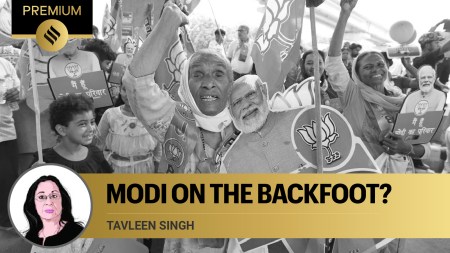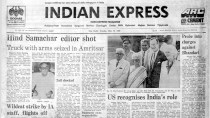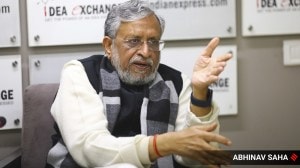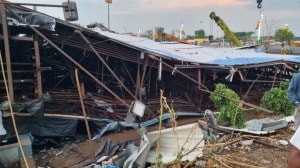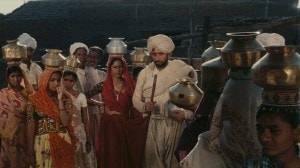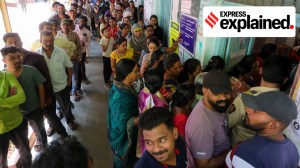- India
- International
Next Door Nepal: No closure in Kathmandu
Draft constitution has widened the political divide
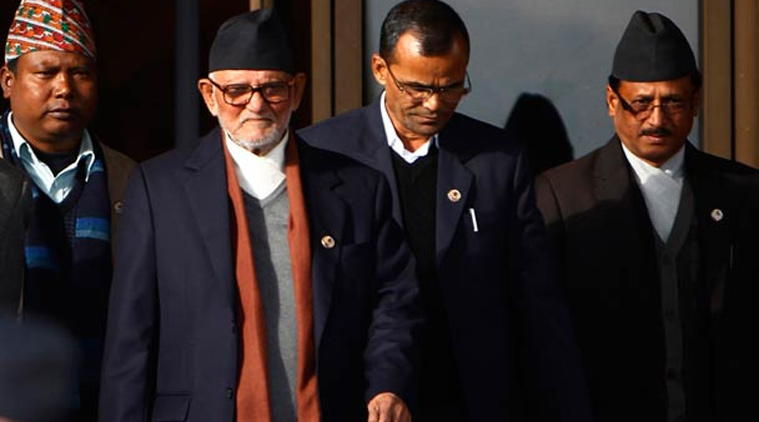 The agreement was signed by leaders of the four main political parties after hours of negotiations at Prime Minister Sushil Koirala’s residence.
The agreement was signed by leaders of the four main political parties after hours of negotiations at Prime Minister Sushil Koirala’s residence.
The delivery of the draft constitution — the projected moment of euphoria — witnessed strange scenes in the Constituent Assembly (CA), when not only members of the opposition but also those from the ruling Nepali Congress stood up to say that the draft was not acceptable.
Members of the Madhesi parties tore up the draft as soon as it was placed before the House by the chairman, Subhash Nembang, saying that the document has deferred the question of federalism, which now stands referred to a yet-to-be-formed federal commission that will settle the demarcation of boundaries for the eight provinces to be formed on the basis of “capability and identity”.
After a brief discussion in the House, the draft constitution is all set to be given final shape and delivered as the constitution of the “Federal Republic of Nepal” by July 15, as per the agreement among the leaders of the bigger parties reached on June 8. But the draft’s poor content has caused confusion, given its contradictions and shortfalls. Surendra Prasad Chaudhary, a senior CA member, said the House was deliberately committing contempt of the Supreme Court, which had asked it to settle the issue of federalism and incorporate it as part of the constitution. Besides, the court had also ordered that the June 8 agreement be stayed. Another member, Pradip Giri, announced his “boycott”, although the parties had agreed to shun all forms of protest. This shows that not only is the deadline going to be missed again, but that more political chaos is going to follow.
While almost a dozen members of the Nepali Congress expressed their reservations, the Rastriya Prajatantra Party-Nepal, the fourth largest party, said it would not accept a constitution that refused to solicit the people’s mandate on issues that pit monarchy against republic, federalism against a unitary system and a secular identity against a “Hindu” Nepal.
What is being criticised is not merely the manner in which the draft was presented. The draft’s contradictions, ambiguities and its lack of direction make it difficult, if not impossible, for the deadline to be met. The “Introduction” contains a single sentence of 220 words and promises to make Nepal a socialist country, heaping praise on the armed struggle and other past movements to assert the “people’s sovereignty”. It blames the “unitary and absolute” regime for all the disparities — of caste, region, etc — prevailing in the country today. It flatly refuses to acknowledge the historical fact that Nepal, through centuries, had remained independent when all the other countries of the region were colonised. However, the eulogy for the armed struggle contains the threat of legitimising the politics of violence. It appears to invite violence into a country that has already witnessed a decade-long armed insurgency by the Maoists against the monarchy and parliamentary system that ended up killing about 17,000 people between 1996 and 2006.

Interestingly, the draft almost admits that it is a temporary statute, since it has stayed away from the earlier position of the parties that “federalism, republicanism and secularism” should be the identity of the state, with no right to review it. As the parties stand discredited, and there is a growing demand that the agenda be settled by the people, the draft simply says that, in future, parliament would have the right to amend these provisions with a two-thirds majority. The draft dropped the word “secularism”, substituting it with “religious freedom”, and deferred the coming into of effect of “federalism”.
Worse, the draft comes at a time when the row between the legislature and the bigger parties on the one hand and the judiciary on the other has escalated, with the former trying to encroach upon the independence of the latter, although the draft itself promises an “independent judiciary”. In the coming days, Nepal is sure to witness further divisions over constitution-making. The judiciary is unlikely to give up its role, warning that a constitution cannot be a mere political document.
yubaraj.ghimire@expressindia.com
EXPRESS OPINION
More Explained
May 13: Latest News
- 01
- 02
- 03
- 04
- 05


